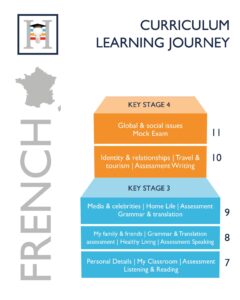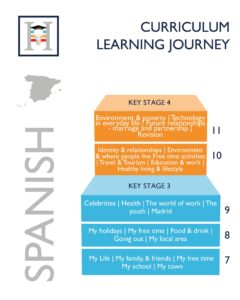Learning a foreign language is a liberation from insularity and provides an opening to other cultures. A high-quality languages education should foster pupils’ curiosity and deepen their understanding of the world. The teaching should enable pupils to express their ideas and thoughts in another language and to understand and respond to its speakers, both in speech and in writing. It should also provide opportunities for them to communicate for practical purposes, learn new ways of thinking and read great literature in the original language. Language teaching should provide the foundation for learning further languages, equipping pupils to study and work in other countries.
Aims
The national curriculum for languages aims to ensure that all pupils:
- Understand and respond to spoken and written language from a variety of authentic sources
- Speak with increasing confidence, fluency and spontaneity, finding ways of communicating what they want to say, including through discussion and asking questions, and continually improving the accuracy of their pronunciation and intonation
- Can write at varying length, for different purposes and audiences, using the variety of grammatical structures that they have learnt
- Discover and develop an appreciation of a range of writing in the language studied.



